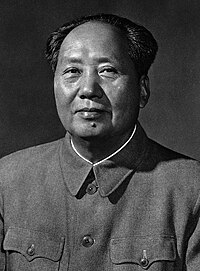
Photo from wikipedia
This essay examines the unintended consequences of governance and economic reform efforts in post-Mao China through ethnographic examination of state audits, market reforms, and the recent anti-corruption campaign. I trace… Click to show full abstract
This essay examines the unintended consequences of governance and economic reform efforts in post-Mao China through ethnographic examination of state audits, market reforms, and the recent anti-corruption campaign. I trace the evolution of elite networks composed of businesspeople and state officials that emerged from China’s economic reforms, and I argue that these networks constitute the social basis of “corruption” in post-Mao China. For the first few decades of the reform period (1978–present), these networks were forged through gendered forms of entertaining and gift exchange. However, as the first generation of post-Mao nouveau riche has given rise to the second generation, this once rather permeable field of alliance building is becoming increasingly closed to the non-elite. By examining the formation and ethos of these networks, I demonstrate how logics of quantification and commensurability associated with capitalism often render particularistic ties rooted in kinship, affect, and pleasure all the more powerful and important to elite actors. My analysis serves to illustrate, more broadly, how systems designed with the purported aim of fostering accountability, efficiency, or fair competition can generate the opposite effects.
Journal Title: Current Anthropology
Year Published: 2018
Link to full text (if available)
Share on Social Media: Sign Up to like & get
recommendations!